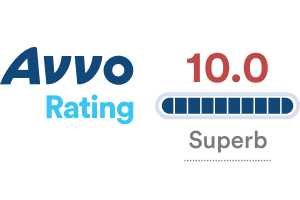Internet Crimes
In today’s digital age, internet crimes have become a major concern for state and federal law enforcement agencies. Maryland, like many states, has enacted specific laws criminalizing internet offenses in addition to existing federal statutes. Prosecutors aggressively pursue convictions and continuously develop more advanced techniques to combat internet crime.
Therefore, it is crucial to obtain a strong criminal defense team capable of navigating the complexities of and effectively defending against charges at both the state and federal levels.
Given the potential for dual state and federal charges in internet crime cases, it is crucial to have a criminal defense team well-versed in both areas of law. State Prosecutors and U.S. Attorneys frequently collaborate to obtain convictions for such offenses. U.S. Attorneys often leverage the threat of a federal indictment to prevent individuals from asserting any defense in state court. They may give the defendant the option to plead guilty in state court. or face trial in federal court, where penalties are typically more severe. This underscores the necessity of retaining a criminal defense team with experience and knowledge in both federal and state prosecutions of internet crimes.
Federal Internet Crimes
Federal internet crimes are prosecuted under laws enacted by Congress and typically involve offenses that cross state lines or have a significant impact on national interests. Some common federal internet crimes include:
- Identity Theft: Using the internet to steal someone’s identity or personal information for financial gain or other fraudulent purposes is a federal offense.
- Harassment or Stalking: Federal law penalizes those who use the internet to cause substantial emotional distress to a person or cause fear of death or serious bodily injury to a person.
- Threatening Across State Lines: A person cannot use the internet to threaten to kidnap, injure a person or property, or make demands for ransom or extorsion toward a person in another state through the internet.
- Computer Fraud and Abuse Act (CFAA): This federal law prohibits unauthorized access to protected computers, networks, or data. It covers activities such as hacking and unauthorized access to government or financial institution systems.
- Child Exploitation and Child Pornography: Federal laws impose severe penalties for producing, distributing, or possessing child pornography, as well as engaging in online enticement or exploitation of minors. These crimes carry a maximum sentence of 30 years, and penalties increase for repeated offenses.
- Wire Fraud: Using electronic communications, including the internet, to deceive others for financial gain is punishable under federal law with a maximum penalty of 20 years in prison.
State-Level Internet Crimes in Maryland
While federal laws address many internet crimes, Maryland also has specific statutes to prosecute additional offenses including:
- Internet Harassment: Maryland has laws prohibiting intentional harassment made via electronic communication, including social media platforms.
- Phishing Scams: State laws may prosecute individuals who use deceptive emails or websites to obtain sensitive information from victims.
- Internet Gambling: Maryland regulates and prohibits certain forms of internet gambling within the state, while some types of online gambling including sports betting have been legalized.
- Online Fraud and Theft: State laws cover various forms of online fraud, including fraudulent schemes conducted through websites or email.
Both federal and state-level internet crimes carry severe penalties, including substantial fines and lengthy prison sentences. Defending against these charges requires a legal team with a thorough understanding of cyber law that is capable of navigating intricate digital evidence and formulating effective defense strategies tailored to the unique aspects of internet-related offenses.
Internet crimes encompass a wide range of illegal activities, from identity theft to cyberterrorism, each carrying distinct federal and state-level consequences. Whether charged under federal statutes like the CFAA or state laws governing online harassment, seeking immediate legal counsel is essential.
The criminal defense team at Silverman Thompson is well-versed in providing an aggressive and comprehensive defense at both the state and federal levels for these serious charges.
If you or a loved one requires defense in a case regarding internet crimes, please contact us toll-free at 800-385-2243 for a free consultation.
Disclaimer: This page is informative in nature. The information contained herein is not to be considered legal advice and there is no attorney-client relationship formed between Silverman Thompson and the reader.











